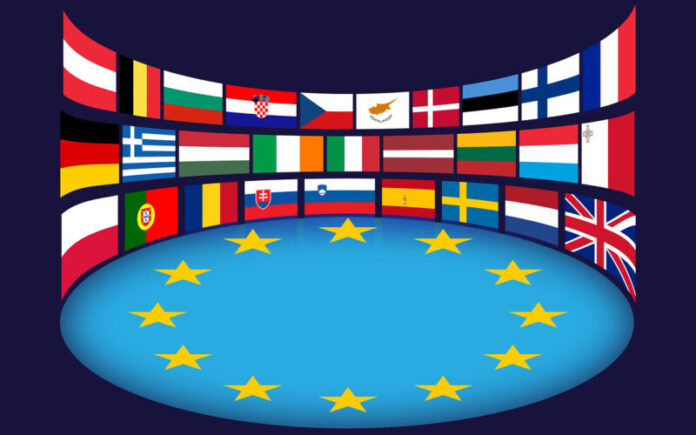
-
President Ferdinand Marcos, Jr. is pushing for the resumption of negotiations for a Philippines-European Union free trade agreement, calling it a “win-win strategy for both parties
-
Marcos said “the timing and conditions are now quite ripe” to solidify the long-standing and historically beneficial trade relations of the two parties through an FTA
-
Marcos has asked members of the EU-ASEAN Business Council and the European Chamber of Commerce in the Philippines to actively advocate for the resumption of negotiations
President Ferdinand Marcos, Jr. is pushing for the resumption of Philippines-European Union (EU) free trade agreement (FTA) discussions, calling it a “win-win strategy for both parties.
“…I believe that we can all agree that the timing and conditions are now quite ripe for us to solidify the long-standing and historically beneficial trade relations: through a bilateral Philippine-EU Free Trade Agreement,” Marcos said in a speech during the recent EU-Association of Southeast Asian Nations (ASEAN) Business Council (ABC) annual general meeting.
Exploratory talks for a PH-EU FTA began in 2013 and EU officially launched negotiations with the Philippines in December 2015. The second round of negotiations took place in February 2017 and no further negotiating rounds have been scheduled yet.
Marcos said an FTA “will be a win-win strategy for both the Philippines and the EU” as it “promises to achieve mutually beneficial economic goals, while maintaining consistency with the EU’s core ideals of sustainable development and environment protection, as well as with EU’s Indo-Pacific Strategy.”
Marcos has asked members of the EU-ABC and the European Chamber of Commerce in the Philippines to actively advocate for the resumption of negotiations.
He said EU-ABC and ECCP can help move the initiative forward to a favorable conclusion as “credible voices of the European business community in the Philippines and in the region.”
“And if and when that happens, it could very well be the capstone of all efforts to strengthen Philippine and EU relations over the course of the next decades,” said Marcos.
He said forming the base of the current administration’s transformative plan for the country is the creation of an enabling environment that will facilitate the attainment of tangible socio-economic goals for the people.
Among these measures include broadening the range of liberalized businesses and sectors to include public services, retail trade, and renewables, as well as making the system of corporate taxation more business-friendly, with a lowered tax rate and improved mechanism for tax and duties incentives.
The government will also establish express or “green” lanes to integrate and streamline permitting and approval processes, and remove unnecessary barriers and redundancies.
Overall, Marcos said these will enhance the potential of the Philippines as an attractive trade and investment destination, adding these also bode well for a stronger and more productive relationship between the Philippines and the EU.
This solid enabling environment, he said, will also pave the way for the country’s compliance with vital international obligations as determined by the EU, and guarantee the Philippines’ continued participation in the Generalized System of Preferences Plus (GSP+) scheme.
GSP+ is an EU program that allows beneficiary countries’ products duty-free access to the European market. The GSP+ coverage of the Philippines will expire at the end of this year and discussions for its renewal are currently ongoing.
Trade Secretary Alfredo Pascual earlier said the Philippines is keen on pursuing the resumption of negotiations concerning the PH-EU FTA.
Pascual said a successful negotiation of the FTA will provide several benefits, including helping the Philippines secure additional duty-free market access beyond those covered by the GSP+ program. It will also provide a conducive framework for attracting greater investments from the EU and will put the Philippines at par with other ASEAN countries who are aggressively pursuing FTAs with the EU.




